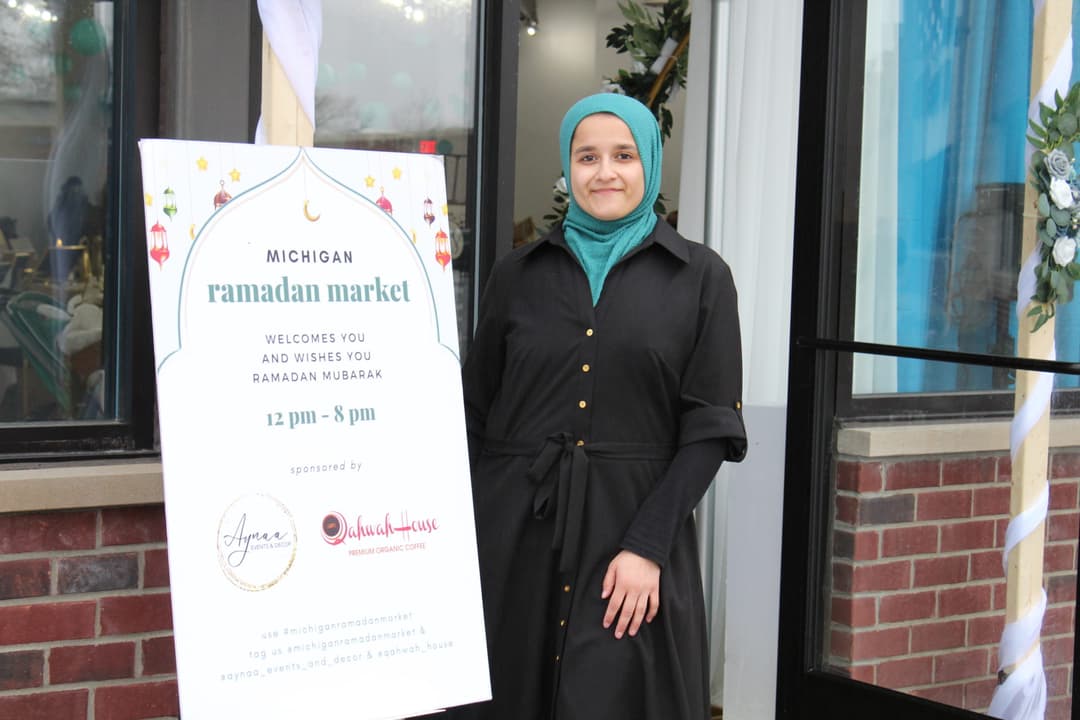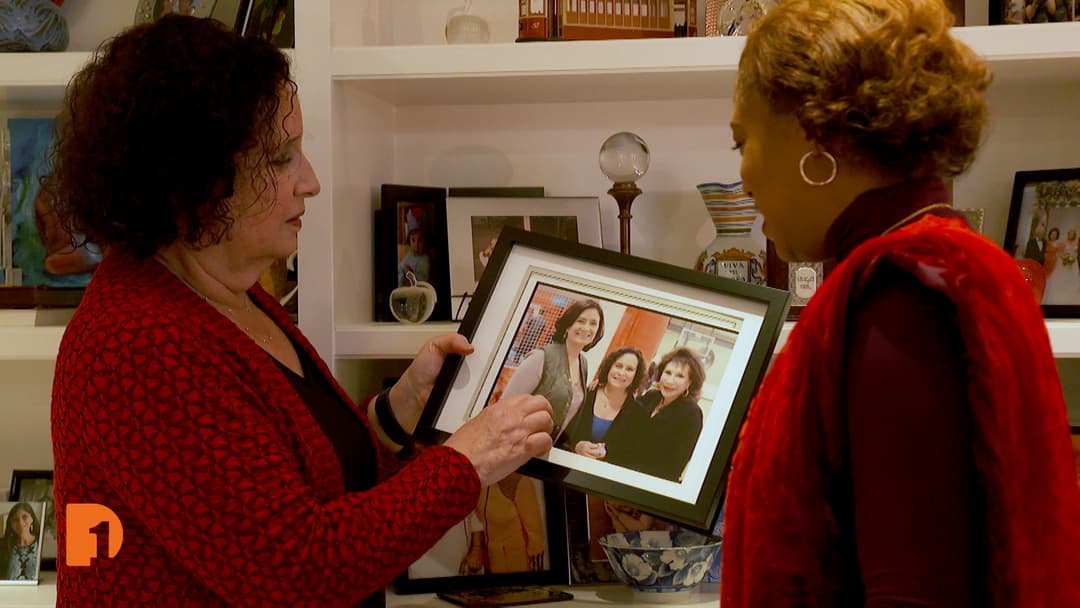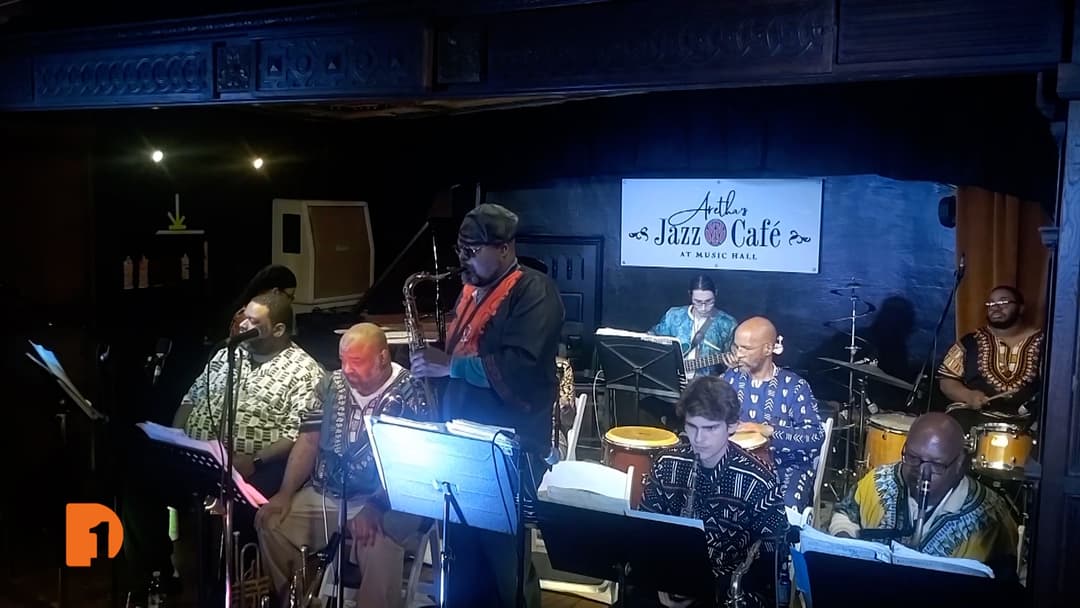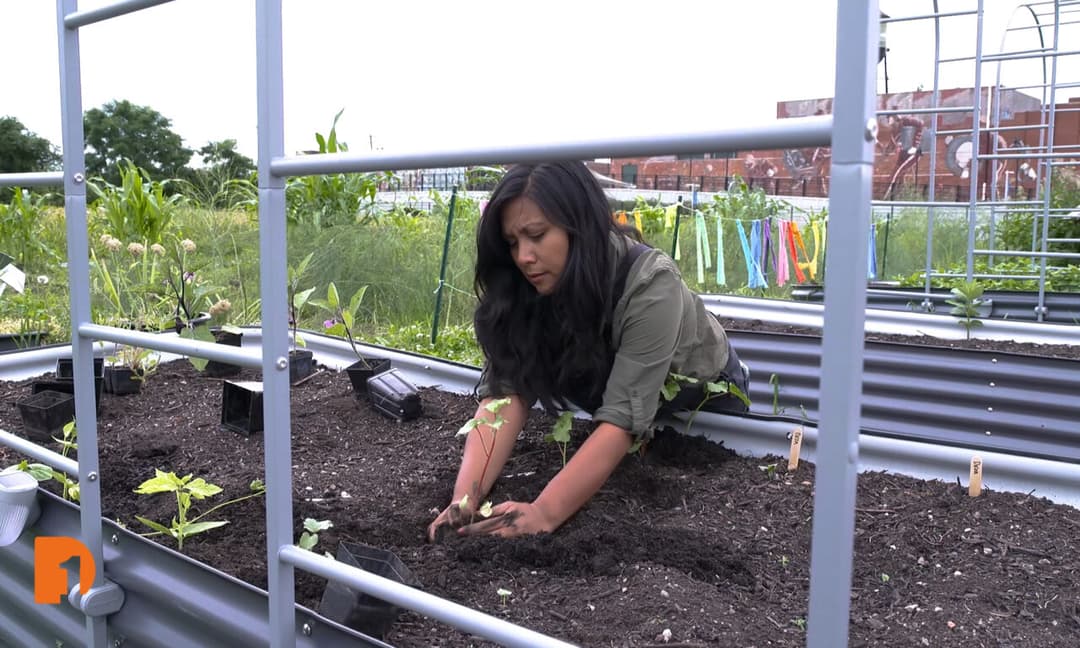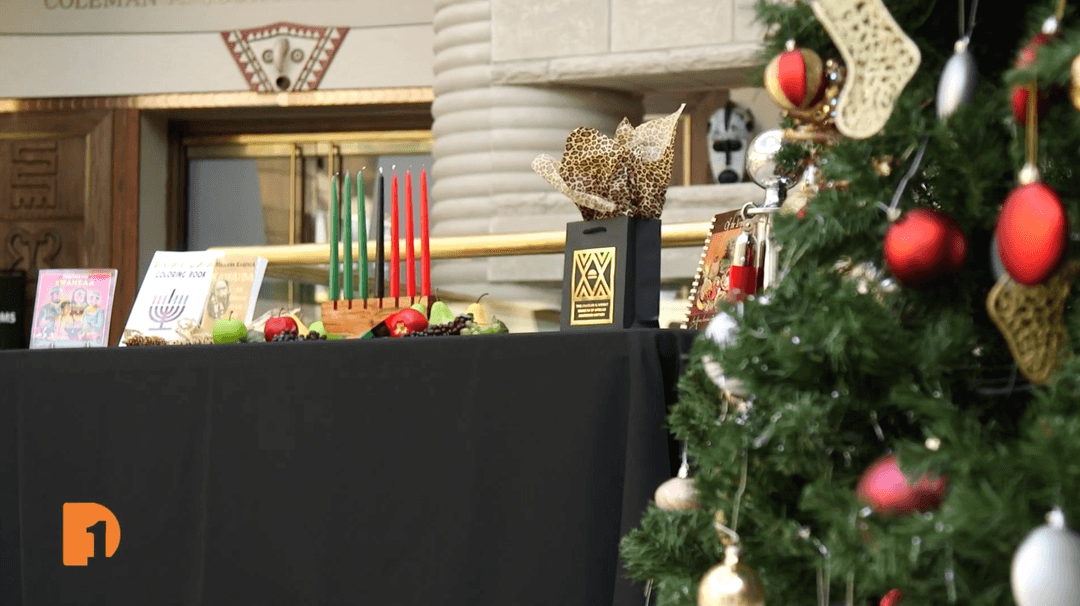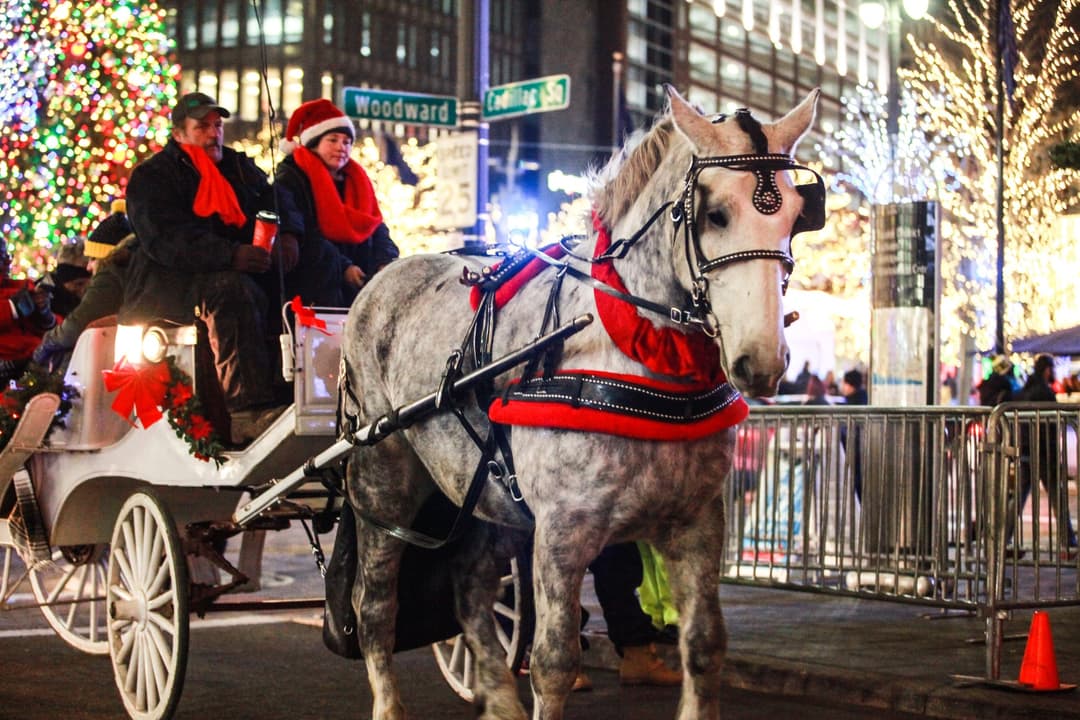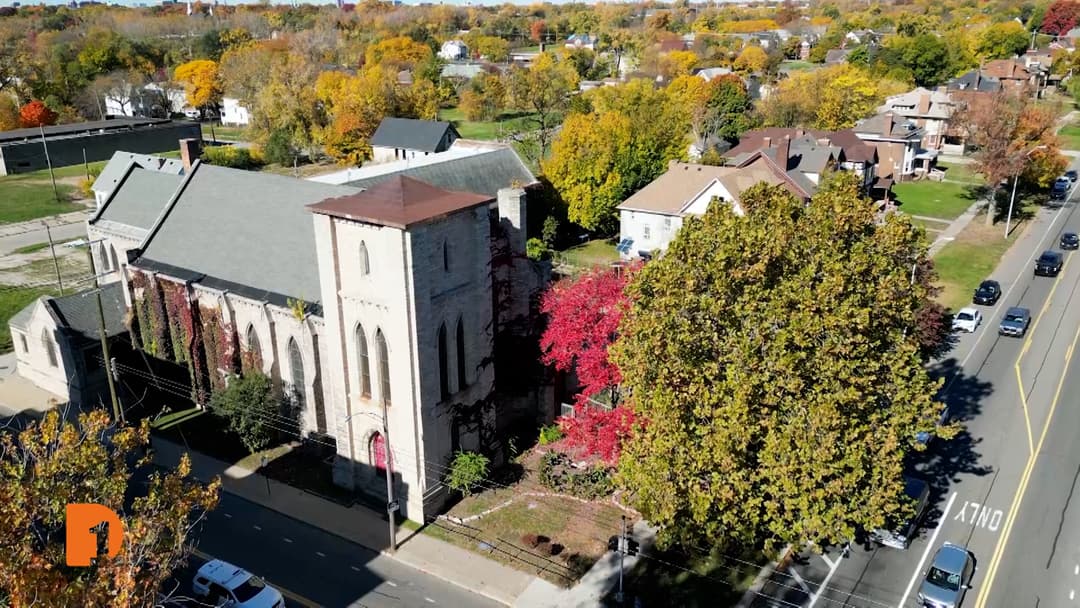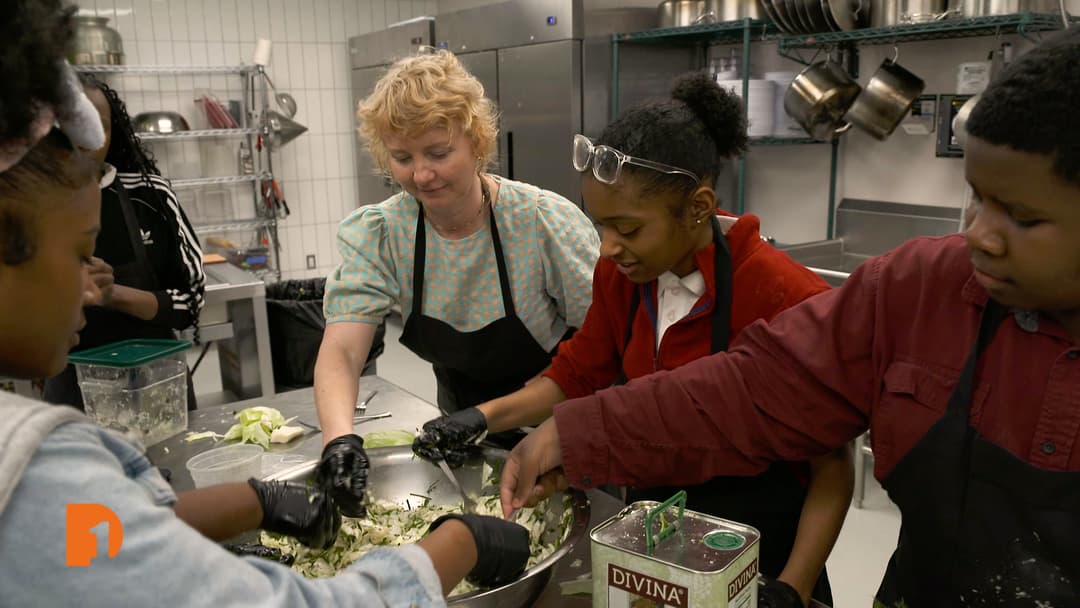The history of Wigilia, a Polish Christmas Eve celebration, and how it’s celebrated in Detroit
Dec 14, 2023
This story was edited and republished on December 14, 2023. It originally aired on Dec 23, 2019.
It’s a holiday tradition that’s bigger in Detroit’s Polish community than Christmas Day itself. The Polish Christmas Eve dinner celebration known as Wigilia has been around for centuries, and it has been celebrated annually right here in metro Detroit. The Polish holiday tradition features 12 different Polish dishes, all meatless, including perogies, red borscht, mushroom soup, sauerkraut, poppy seed cake, and plenty more.
RELATED:
- Mochitsuki: the Japanese art of pounding rice for New Years
- Detroit Filipino Supper Club cooks up connections to culture, history and community
One Detroit visited Wayne State University Polish Club‘s Wigilia celebration at the Polish Village Cafe in Hamtramck in 2019 to learn more about the tradition’s history and cultural significance, and how Wigilia has helped Detroit’s Polish community find deeper connections to their family and heritage.
Full Transcript:
Christy McDonald, One Detroit, DPTV: A December weekend in Hamtramck, the Polish Village Cafe, where there’s a Wigilia celebration about to begin.
Alina Klin, Senior Lecturer, Wayne State University: OK, well, we’ll figure it out.
Christy McDonald: Alina Klin hosts the gathering.
Alina Klin: Wigilia, the word comes from the Latin, which means ‘to watch.’ So it’s waiting for, watching out, waiting for Christ to be born, which we celebrate, of course, Christmas Day.
Christy McDonald: Klin came from Poland 30 years ago. Now she teaches Polish history and culture at Wayne State University.
Alina Klin: It is the most traditional, the most celebrated of all Polish holidays. So anywhere…
Christy McDonald: While Christmas Day is big in Polish homes, Wigilia is bigger, held on Christmas Eve.
Jessica Wendt, Alumna, Wayne State University: Wigilia is one of the most important Polish traditions that we have, and so I found it very important to be here today, to support Wayne State and to promote and keep these traditions alive.
Christy McDonald: Gillian Demeter studies Polish at Wayne State.
Gillian Demeter, Student, Wayne State University: I thought it would be fun, so I invited my family as well.
Event Participant: This is my sister…
Charles Bemiss, Student, Wayne State University: I’m second generation Polish. I grew up knowing bits and pieces but studying the language and getting a degree in that language has given me so much more, and I’ve been able to now reconnect with my cousins who live in Poland, my family of Polish roots. So it’s exciting to be able to be a part of that.
Alexander Clegg, Student, Wayne State University: On Christmas Eve, we want to be with our families and friends, and we also want to be at our best behavior, to be sure that the next year will bring us health and prosperity.
Christy McDonald: In Poland, the run up to Wigilia means fasting, but not too much.
Alina Klin: They try to eat very lightly, a little bit throughout the day, maybe two little meals, and then they would sit down to this very sumptuous, however meatless dinner. And this meatlessness of this dinner is because it’s still fast before Christmas. It’s not Christmas yet.
Christy McDonald: Some might think Hamtramck, as far as local Polish history goes. Many Poles came to work at the Chrysler assembly plant, the massive Dodge main complex that closed back in 1980. But the Polish story in Detroit starts even before that.
Alina Klin: Since Polish women at the beginning of the 20th century, a lot of them worked in cigar industry, and not many people know then before Detroit had that automotive industry, of which Detroit is so famous, of cigar industry, which Detroit was famous of.
Christy McDonald: Poles came not just to Hamtramck and the East Side. They established parishes on the West Side along Michigan Avenue. Laurie Gomulka Palazzolo documents the Polish American experience there.
Laurie Gomulka Palazzolo, Polish American Historian: With me, my interest really piqued when my dad passed away. My dad was a Polish American musician. He was quite famous in the Detroit area. His name was Ted Gomulka. He was a trumpeter.
Christy McDonald: Polish-American jazz musicians created polka music, popular in Detroit. Ted Gomulka appeared regularly on radio and television. He was a Decca Records recording star.
Laurie Gomulka Palazzolo: He had his own polka band for many, many years. And when he passed away in 1998, he had this sort of sense, this feeling, that nobody was going to care and nobody was going to remember anything that he had accomplished in his life.
Christy McDonald: Preserving history can be a challenge. In the century past, Polish immigrants weren’t treated so well, in part because many did not speak English.
Alina Klin: They were also Catholics. That was the time when Catholics were not really looked at the very favorably.
Christy McDonald: Many also despised and ridiculed Polish Catholics, fearing their allegiance was to the pope and not to their new country.
Carey Vigor-Zierk, Hamtramck Native: We really didn’t celebrate Wigilia when I was growing up. When I was very little, we lived in the attic of my grandfather’s house, not far from here. I grew up in a Polish-speaking household and I’m now fairly fluent in Polish. But I was forbidden to speak Polish because my father’s family back in the 50s didn’t want anyone to know that we were Polish.
Christy McDonald: Back in the kitchen, Marta Birowka and Zaucha Khurais coordinate the delivery of the delicacies.
Marta Birowka, Wigilia Cook: Oh, we don’t microwave anything, we don’t even have a microwave! No, it’s just got to be freshly baked or fried. Traditional Wigilia is twelve dishes. Twelve is the limit. You can’t have any more. You’re not able to eat anymore.
Christy McDonald: First up, there’s opłatki. That’s plural for opłatek, a thin, rectangular wafer.
Jessica Wendt: My most favorite tradition is the opłatek, where you share the Christmas wafer before the meal and you go around the room with a wafer, you break off a piece of theirs, they break a piece of yours, and you reconcile any differences you may have had throughout that year and wish peace and happiness and all the prosperity for the new year to come. So everyone starts in a fresh slate.
Event Participants: (inaudible)
Christy McDonald: While the traditional Wigilia meal doesn’t have meat, fish is included. Starting with śledzie: pickled herring in a cream sauce.
Alina Klin: This śledzie reminds us also of the fact that it is still fast, it’s not Christmas, yet.
Christy McDonald: Another Wigilia requirement: soup. Here it’s borscht, made from beets. Then there’s pierogi, sweet and savory filled dumplings.
Alicia Bemiss, Founder, Old World Gluten-Free: And we host our Wigilia at our house every year. And yes, we have gluten-free pierogi, and everybody loves them. Nobody knows the difference.
Christy McDonald: Here, the Bemiss family tells their own Wigilia pierogi story. Alisha’s son Wayne State student Charles, he can’t eat gluten.
Alicia Bemiss: We got to the point where when he was diagnosed at the age of 12, he said, ‘oh my gosh, mom, I’m never going to have pierogi again.’ He said ‘find a way to make them gluten free.’
Christy McDonald: Alisha did. Now the Bemiss (family) run a gluten-free pierogi factory in St. Clair Shores. Their pierogis are available in stores across southeastern Michigan.
Alicia Bemiss: It’s our busiest time of the year.
Christy McDonald: Wigilia’s main course includes potatoes, sauerkraut and more fish. In Poland, it might be a carp fillet, but here cod is served.
Alina Klin: And for dessert, we will have for sure poppy seeds raw, because poppy seeds is one of this magical components in Wigilia, which goes way back to assure prosperity. Next year, you need to eat some poppy seeds at Wigilia.
Event Participants: (Singing)
Christy McDonald: This Wigilia event has been going on for decades, and now Wayne State alum Jessica Wendt sees more interest in the old traditions, thanks to new technology.
Jessica Wendt: We have social media, so social media helps to really kind of promote and educate friends, spark interest and questions, and then people really kind of are reaching back to the roots of where they came from.
Stay Connected:
Subscribe to One Detroit’s YouTube Channel and don’t miss One Detroit on Thursdays at 7:30 p.m. on Detroit PBS, WTVS-Channel 56.
Catch the daily conversations on our website, Facebook, Twitter @DPTVOneDetroit, and Instagram @One.Detroit
View Past Episodes >
Watch One Detroit Thursdays at 7:30 p.m. ET on Detroit Public TV on Detroit Public TV, WTVS-Channel 56.
Stay Connected
Subscribe to One Detroit’s YouTube Channel and don’t miss One Detroit on Thursdays at 7:30 p.m. and Sundays at 9 a.m. on Detroit PBS, WTVS-Channel 56.
Catch the daily conversations on our website, Facebook, Twitter @OneDetroit_PBS, and Instagram @One.Detroit
Related Posts
Leave a Reply
Your email address will not be published. Required fields are marked*



